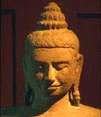THERE are three types ordsprog
 |
 |
 |
 |
Antal ordsprog er 2101330
varav 2122549 på nordiska
Ordsprog (2101330 st) Søg
Kategorier (3944 st) Søg
Kilder (201411 st) Søg
Billeder (4592 st)
Født (10498 st)
Døde (3319 st)
Datoer (9520 st)
Lande (27300 st)
Idiom (4439 st)
Lengde
Topplistor (6 st)
Ordspråksmusik (20 st)
Statistik
Denna sidan visar ordspråk som liknar "THERE are three types of persons: those, who confess their own faults and mention the excellence of others, are the highest type; those, who highlight their own excellence and decry the faults of others, are worse; those, who parade their own faults as excellence and deride the excellence in others as faults, are the worst. The last type is nowadays most rampant.".
varav 2122549 på nordiska
Ordsprog (2101330 st) Søg
Kategorier (3944 st) Søg
Kilder (201411 st) Søg
Billeder (4592 st)
Født (10498 st)
Døde (3319 st)
Datoer (9520 st)
Lande (27300 st)
Idiom (4439 st)
Lengde
Topplistor (6 st)
Ordspråksmusik (20 st)
Statistik
Denna sidan visar ordspråk som liknar "THERE are three types of persons: those, who confess their own faults and mention the excellence of others, are the highest type; those, who highlight their own excellence and decry the faults of others, are worse; those, who parade their own faults as excellence and deride the excellence in others as faults, are the worst. The last type is nowadays most rampant.".
